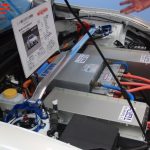The shift towards eco-friendly vehicles is accelerating as more people seek to reduce their carbon footprint. Among the most popular choices are electric cars and hybrid cars, each offering distinct advantages and considerations. Understanding the differences between these two types of vehicles is crucial for making an informed decision. In this article, we will explore the key features, benefits, and challenges of electric cars and hybrids, helping you choose the right eco-friendly car for your needs.
Understanding the Basics of Electric Cars
Electric cars, commonly referred to as EVs, run solely on electricity stored in a battery pack. They do not rely on gasoline or diesel, making them a zero-emission option. Electric cars are powered by one or more electric motors, which draw energy from the battery to move the vehicle. When it comes to charging, electric cars can be plugged into a standard outlet at home or at designated charging stations.
One of the most significant advantages of electric cars is their environmental impact. Since they produce no tailpipe emissions, electric cars contribute to reducing air pollution and combating climate change. Additionally, electric cars tend to have lower operating costs than traditional gasoline-powered vehicles. However, electric cars also require access to reliable charging infrastructure, and their driving range can be limited by the size of the battery.
Key Features of Hybrid Cars
Hybrid cars combine a gasoline engine with an electric motor, offering a blend of traditional and modern technologies. The electric motor in a hybrids assists the gasoline engine, which can reduce fuel consumption and emissions. There are different types of hybrids, including full hybrids and plug-in hybrids, each with varying levels of reliance on electricity.
The primary benefit of hybrid is their versatility. Hybrid cars can switch between gasoline and electric power, or use both simultaneously, providing a longer driving range than electric cars. Additionally, hybrids do not require access to charging stations, as they generate electricity through regenerative braking and the gasoline engine. This makes hybrids a convenient option for those who may not have access to charging infrastructure or who frequently drive long distances.
Read More: Second Life for EV Batteries: Exploring the Future of Electric Car Battery Recycling
Cost Considerations: Upfront and Long-Term Expenses
When comparing electric cars and hybrid cars, cost is a major factor to consider. Electric cars typically have a higher upfront cost than hybrid cars, primarily due to the expensive battery technology. However, government incentives and tax credits are often available for electric car buyers, which can help offset the initial cost. Over time, electric cars can be more economical due to lower fuel and maintenance costs.
Hybrid cars, on the other hand, tend to have a lower purchase price than electric cars. While hybrid cars do require gasoline, they are more fuel-efficient than traditional vehicles, which can lead to savings at the pump. Maintenance costs for hybrid cars are generally lower than those for conventional vehicles, but higher than those for electric cars, due to the complexity of the dual powertrain.
Environmental Impact: Which Option is Greener?
Both electric cars and hybrid cars offer environmental benefits compared to conventional gasoline-powered vehicles. However, the extent of these benefits varies between the two options. Electric cars are the clear winner in terms of reducing greenhouse gas emissions, as they produce no tailpipe emissions. The overall environmental impact of electric cars depends on the source of electricity used to charge them. If the electricity comes from renewable sources, such as solar or wind, the carbon footprint of electric cars is minimal.
Hybrid cars also offer environmental benefits, particularly in urban driving conditions where the electric motor can handle a significant portion of the driving. This results in lower emissions and improved fuel efficiency. However, since hybrid cars still rely on gasoline, their overall environmental impact is greater than that of electric cars. Nevertheless, hybrid cars are a more environmentally friendly option than traditional vehicles, especially for those who cannot fully commit to an all-electric car.
Driving Experience: Performance and Convenience
The driving experience is another important factor to consider when choosing between electric cars and hybrid cars. Electric cars are known for their smooth and quiet operation, thanks to the absence of an internal combustion engine. The instant torque provided by the electric motor delivers strong acceleration, making electric cars enjoyable to drive. Additionally, electric cars often come with advanced technology features, such as regenerative braking and one-pedal driving, which enhance the overall driving experience.
Hybrid cars also offer a pleasant driving experience, with the added benefit of longer driving ranges. The combination of gasoline and electric power provides ample performance for everyday driving, and the transition between the two power sources is usually seamless. Hybrid cars are also equipped with regenerative braking, which helps recharge the battery during driving. While hybrid cars may not be as quick off the line as electric cars, they offer the convenience of not needing frequent recharging.
Charging and Refueling: Availability and Convenience
For electric car owners, the availability of charging stations is a critical consideration. While the number of charging stations is growing, access can still be limited in certain areas, particularly in rural or remote locations. Charging an electric car at home is an option, but it requires a dedicated charging setup, which can add to the initial cost. The time required to fully charge an electric car depends on the battery size and the type of charger used, with faster charging options available at public stations.
Hybrid cars, on the other hand, do not rely on external charging infrastructure. Since hybrid cars can run on gasoline alone, refueling is as simple as stopping at a gas station. This makes hybrid cars a more convenient option for drivers who frequently travel long distances or live in areas with limited access to charging stations. However, for plug-in hybrid cars, charging is necessary to maximize the electric range, and access to charging stations can still be a consideration.
Longevity and Battery Life
Battery life is a crucial aspect to consider for both electric cars and hybrid cars. Electric car batteries are designed to last for many years, often with warranties covering 8 to 10 years or more. Over time, the capacity of the battery may decrease, which can reduce the driving range. However, advancements in battery technology continue to improve the durability and longevity of electric car batteries.
Hybrid car batteries are generally smaller than those in electric cars and are also designed to last for many years. The gasoline engine in a hybrid car reduces the strain on the battery, potentially extending its lifespan. Replacement costs for hybrid car batteries are typically lower than those for electric cars, but they still represent a significant expense. Proper maintenance and driving habits can help extend the life of the battery in both types of vehicles.
Conclusion: Making the Right Choice for You
Choosing between an electric car and a hybrid car depends on your individual needs, driving habits, and priorities. If your goal is to minimize your carbon footprint and you have access to reliable charging infrastructure, an electric car may be the best choice. Electric cars offer the greatest environmental benefits and can be more economical in the long run.
However, if you value versatility, longer driving ranges, and convenience, a hybrid car might be the better option. Hybrid cars provide a balance between fuel efficiency and driving range, making them suitable for a wide range of driving conditions. Additionally, hybrid cars do not require the same level of commitment to charging infrastructure, which can be a significant advantage for some drivers.
In the end, both electric cars and hybrid cars represent a step towards a more sustainable future. By carefully considering your lifestyle and preferences, you can choose the eco-friendly vehicle that best aligns with your needs.











